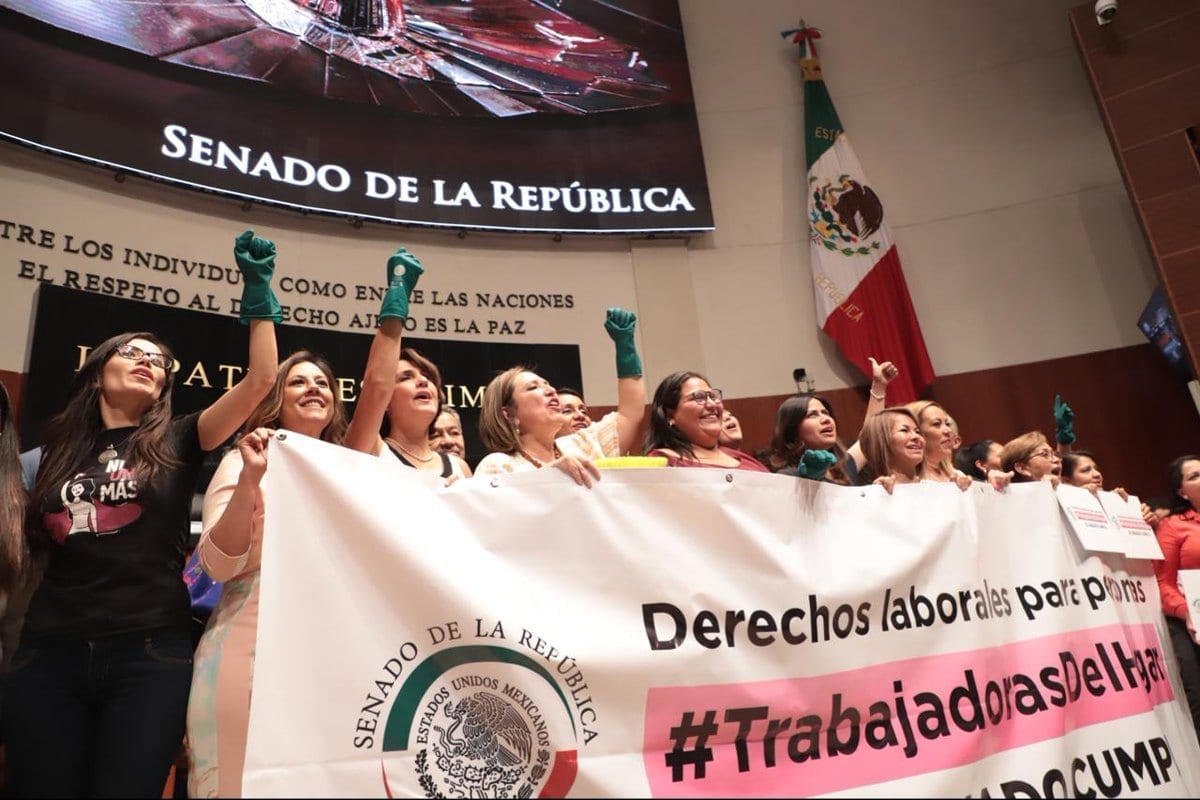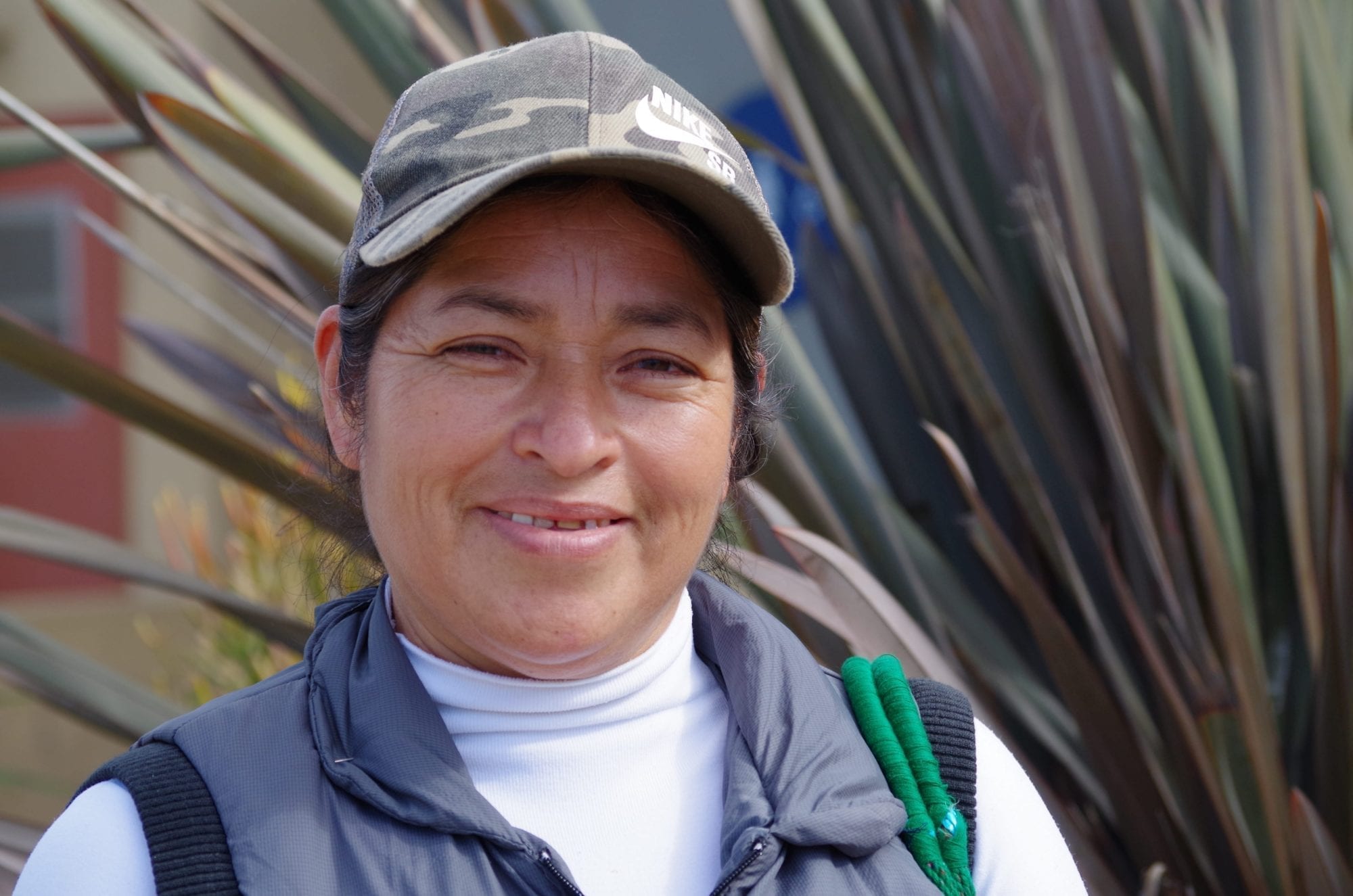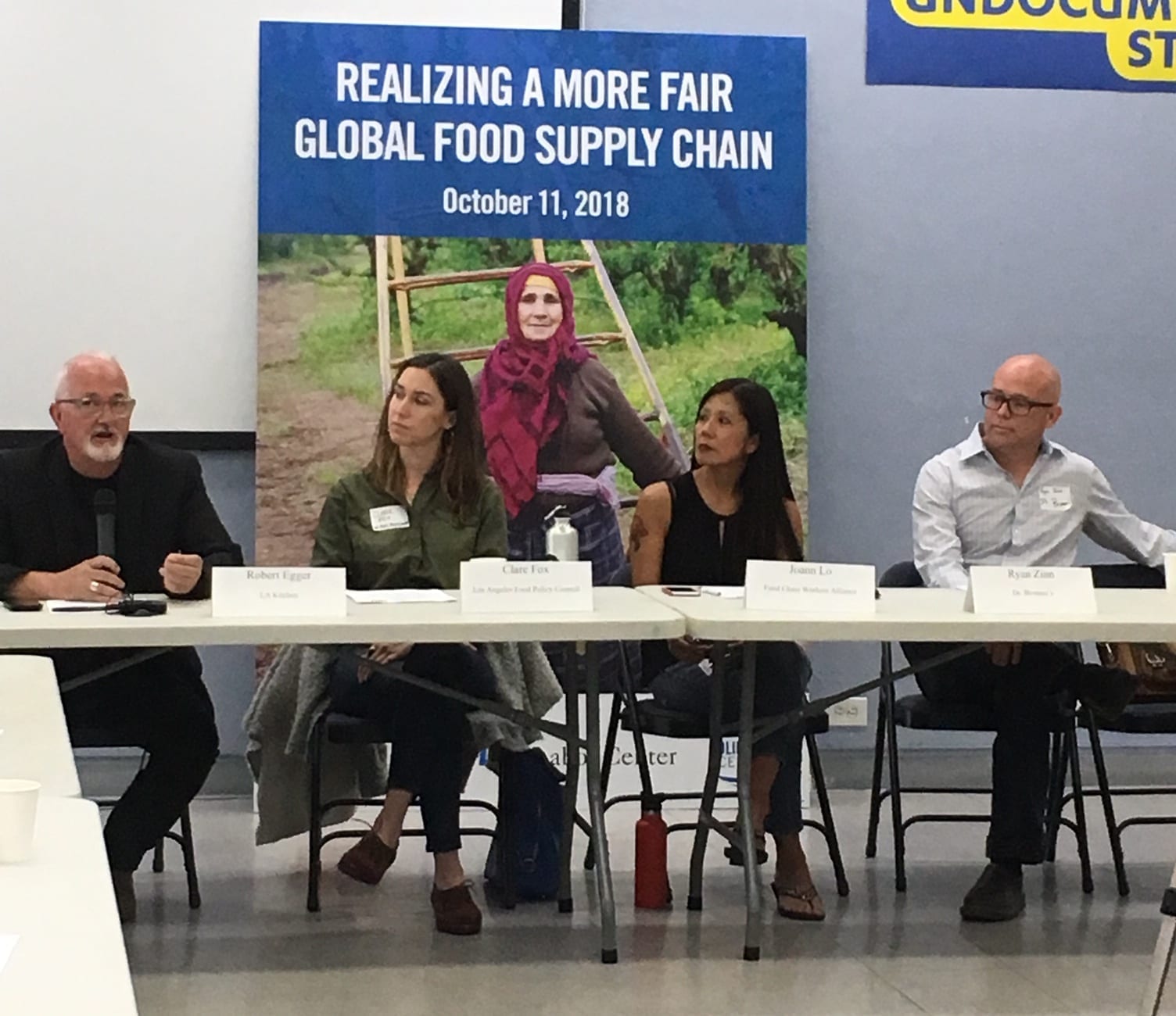Oct 26, 2020
“The new accord [USMCA] also includes provisions to permit collective bargaining and to close loopholes allowing Mexican employers to profit by mistreating their workers … On paper, the Mexican reforms would allow workers to organize unions outside of the company-controlled ‘white’ unions that exist to guarantee big employers labor peace. Even before the pandemic slowed government operations, implementation was behind schedule, according to Gladys Cisneros, Mexico program director for Solidarity Center, an AFL-CIO affiliate.”
Jun 29, 2020
Gladys Cisneros, country program director at the Solidarity Center in Mexico City, says under the USMCA, Mexico will have to clear a huge backlog of labor disputes. And the courts have been shut down because of the coronavirus. “It’s not the most reassuring landscape, by any means, but this was going to be challenging no matter what.”

May 16, 2019
Legislation requiring written contracts, paid vacation and annual bonuses for domestic workers passed Mexico’s House and Senate and is expected to be signed into law by President Andrés Manuel López Obrador.
The landmark law, which also prohibits employers from hiring domestic workers younger than age 15, requires employers provide at least a day-and-a-half off each week and defined rest periods.
The law comes after domestic workers across Mexico began organizing nearly two decades ago to push for their rights on the job, first forming a Support and Training Center for Domestic Workers (CACEH) and in 2015, launching the country’s first domestic workers’ union, SINACTRAHO. Both CACEH and SINACTRAHO are Solidarity Center partners.
“After 18 years of fighting through the Support and Training Center for Domestic Workers and SINACTRAHO, some of our demands are reflected,” SINACTRAHO said Monday in a Tweet after the Senate approved the bill. “We know that we must continue working, but today we are sure that the voice and demands of domestic workers have been heard.”
Domestic workers are rarely covered by countries’ labor laws, with domestic work often viewed as not “real” work. Yet more than 67.1 million domestic workers, predominately women, care for others’ families and homes invisibly and in private, often required to live on the premises of their employer. Away from the public eye, they frequently are subject to abuse.
Domestic Workers’ Global Fight for Decent Work
In Mexico and around the world, domestic workers are joining together to champion their rights to safe work, decent wages and fair treatment on the job. Domestic workers in Mexico took part in the global campaign spearheaded by the International Domestic Workers Federation (IDWF) and the IUF, the global union federation, to successfully push for the 2011 ratification of the International Labor Organization’s historic Convention 189 on domestic workers’ rights. The Domestic Workers Convention went into effect in September 2013 and has been ratified by more than 20 countries.
The obscurity in which domestic workers labor and their daily struggles for respect and fairness were illuminated in this year’s Academy Award-winning film, Roma. The film’s depiction of live-in maid Cleo, working for a family in crisis in turbulent 1970s Mexico City as her own life takes a devastating turn, has widened space for domestic workers to push for their rights and recognition.
Marcelina Bautista, a former domestic worker who founded the Center for Support and Training of Domestic Workers (CACEH) and served as SINACTRAHO co-president, has screened the film widely. She discusses with audiences the real-life challenges Mexican domestic workers confront—and how similar they are to those Cleo faces in the movie.
For Bautista and the 2 million domestic workers across Mexico, the far-reaching legislation defining domestic workers’ rights is a big step after a long struggle.
“We can only hope it will improve the lives of so many women not only on paper but in reality,” Bautista told the New York Times.

Oct 24, 2018
When thousands of farmworkers from Mexico’s coastal state of Baja California waged a 12-week strike in 2015 to protest poverty wages—roughly $4 a day—and poor working conditions like lack of access to water, Abelina Ramírez saw her chance to ensure women’s concerns, such as sexual harassment in the fields, were addressed.

“It’s important for us to get the message out to workers to join the union”—Abelina Ramírez Credit: Solidarity Center/Tula Connell
“I decided to join the national caravan [in 2017] from San Quintín to Mexico City,” says Ramírez. “I joined the coordinating team because neither [of the organizations leading the strike] had a woman leader who could speak to any of these issues, and that’s where I got fully involved,” she says, speaking through a translator. (Ramírez discusses her work here.)
The strike drew international attention to the conditions of the region’s roughly 80,000 workers who pick berries and tomatoes for 160 different agro-industiral companies, and workers ultimately won wage increases, boosting pay from approximately $4 per day to $8-$10.
Ramírez, now alternate secretary of gender equality for the National Independent and Democratic Union of Farmworkers (Sindicato Independiente Nacional Democrático de Jornaleros Agrícolas, SINDJA), was among speakers at the recent Solidarity Center conference in Los Angeles, “Realizing a More Fair Global Food Supply Chain.”
In an interview with the Solidarity Center, Ramírez says workers are still fighting for their original 14 core demands, among which is onsite medical facilities. Workers who are injured or fall ill in the fields must be transported long distances to receive care, and some have died in transit, she says.
Further, despite the wage increase, farmworker pay is still comparable to wages paid in much poorer countries, and farmworkers say a national wage category for them should be created, as exists for carpenters and other professional workers.
“What we’re fighting for is a professional-level salary because we see the work we do—cutting, picking and packing—as part of a professional category, and we’re not being respected,” says Ramírez.
Women Farmworkers Struggle to Care for Their Children
Like many women and men in Mexico’s southern Oaxaca region, Ramirez saw an opportunity to improve her livelihood when a labor recruiter showed up promising good wages for picking berries and tomatoes far north, in San Quintín.
“When there are no options because of poverty, we end up migrating,” says Ramírez, who has picked berries for 13 years.
Most mothers who migrate for work take their children but, once in the fields, find no public services and no child care, and “that’s when you realize this crude reality of what moving has meant—you can’t provide for your children and give them an education,” she says. Unable to afford decent housing on the low wages they are paid, many farm laborers are forced to live in company or government encampments—each family occupying a space between 9 square feet and 13 square feet, with shared bathrooms and laundry.
“That’s why it’s important for us to get the message out to workers to join the union, she says. “It’s important for them to realize that together, we can join forces and go up against the employers and the government and get a better life for ourselves and our families.”
Ramírez holds workshops on labor rights, including gender equality, and now seven women trained by the union meet with women farmworkers to encourage them to take part. She reaches the women by “starting with issues that matter to them: They care about child care, medical attention,” says Ramírez.
As she experienced during the 2015 strike, when “everybody joined, my family, my children joined, we got our signs and we went out,” Ramirez says “we knew that we could achieve something if we all went out.”
And that’s why Ramírez sees union organizing as fundamental to improving worker rights.
“Because coming together, through our unity, we’re going to achieve the changes we’re striving for.”

Oct 11, 2018
“Now more than ever we see the need to organize across borders to tackle corporate global supply chains” that keep workers from retail and farms in low wages,” says Art Pulaski, executive secretary-treasurer and chief officer of the California Labor Federation.
“We need to learn from each other to learn to organize more.”
Pulaski helped open a day-long conference, “Realizing a More Fair Global Food Supply Chain,” which gathered farm worker activists and food justice advocates to explore farmworker organizing strategies, alliances to support worker rights across the food chain, legal initiatives to ensure decent work and the importance of workers in the advancement of sustainability and justice as our food moves from farm to table.
“We are talking about a whole distribution system that is based on low-wage work, an economic model that relies on low wages in restaurants, retail, farms,” says Solidarity Center Executive Director Shawna Bader-Blau. “Today is about changing that.”
Bader-Blau and Kent Wong, director of the University of California-Los Angeles Labor Center, joined in launching the event, sponsored by the Solidarity Center, the Food Chain Workers Alliance and UCLA Labor Center.
One way to improve worker rights in global supply chains involves workers coming together to demand their rights, and union activists from Mexico, Morocco and Washington state shared their successful strategies organizing farmworkers.
Speaking on the first panel, “Build Real Voice and Real Work for Workers,” Ramon Torres, president of Familias Unidas por la Justicia in Washington state, described how he joined with co-workers on farms in Washington state for a two-cent an hour raise in 2013. They went on to champion laws that ensured farmworkers would receive their wages from employers who he estimates engaged in wage theft totaling $850,000.
“One thing I want to emphasize is how important it is for us to organize,” says Torres, speaking through a translator. “I am proud to represent workers.”
In Morocco, where the Democratic Labor Federation (CDT) organized more than 1,000 farmworkers on a large agro-industrial complex, the union focused on empowering women throughout the process, says Saida Bentahar, a member of the CDT executive committee.
“For women working in the agricultural fields, women started to learn about their rights and how to discuss and negotiate,” says Bentahar. “Women also managed to have their voices heard during negotiations” and as a result, they won first-ever health care and education opportunities for their children and can work in higher-skilled, higher-paid jobs previously open only to men.
“Now women benefit from many advantages they would not have had without the collective bargaining agreement,” she says.
Food justice advocates shared how they incorporate the rights of workers along the global agricultural supply chain during the second morning panel, a strategy session on models of cooperation.
“When we say agricultural food chain workers, we mean farm workers, fish workers, meat processing and poultry processing workers, those who truck the food and workers in grocery stores, retail chains, restaurants, and street vendors,” says Joann Lo, co-director of the Food Chain Workers Alliance in Los Angeles.
Lo says her organization forrmed as the sustainable food movement took off and consumers began asking how far their food traveled and was it fresh and sustainable—but left workers out of the conversation. “We need to ask: Are the jobs sustainable for workers in the global supply chain?” she says.
“The power of procurement most powerful tool we have,” says Clare Fox, executive director at the Los Angeles Food Policy Council. Fox described how her organization successfully moved the LA Unfired School District—which spends $150 million a year on food—to commit to ensuring 15 percent of the food it sources meets a baseline of fair labor, animal welfare and nutrition.
The panel also included moderator Robert Eggers, president of the LA Kitchen and Ryan Zinn, regenerative projects manager at the family-owned organic, fair trade company, Dr. Bronner’s.
Stop back for more coverage of the afternoon sessions!




